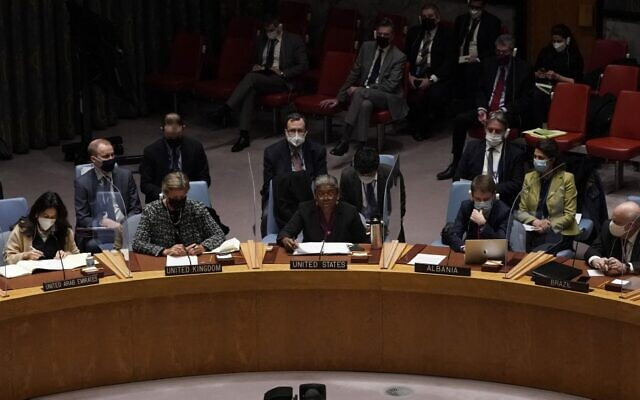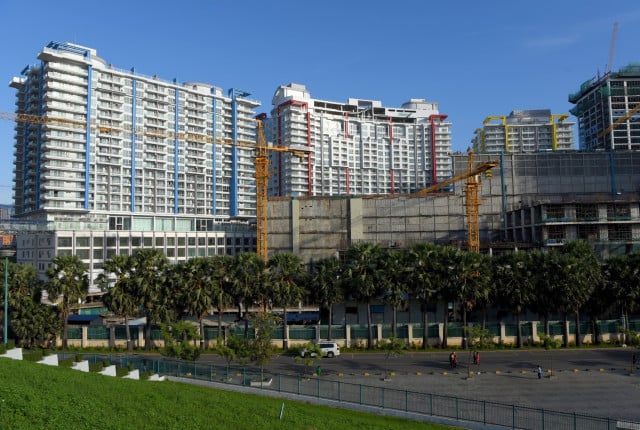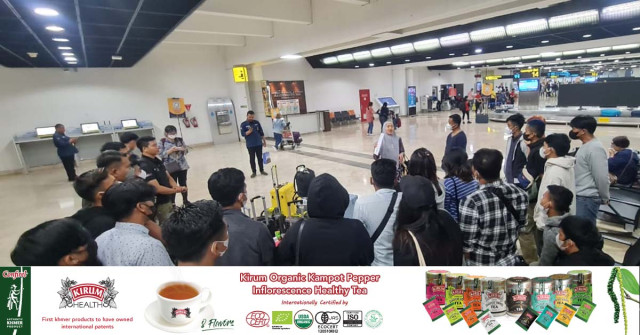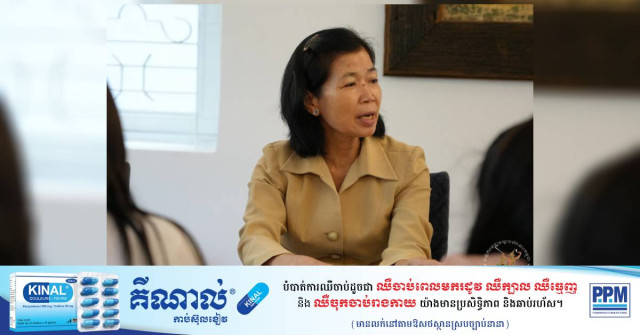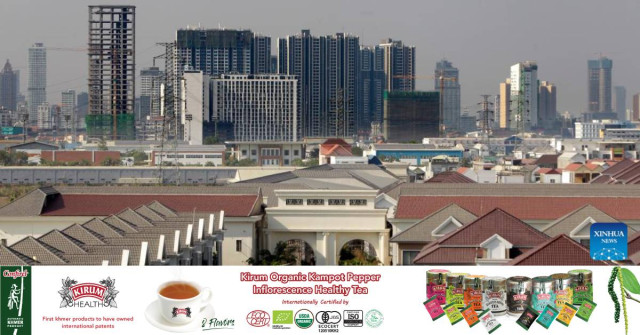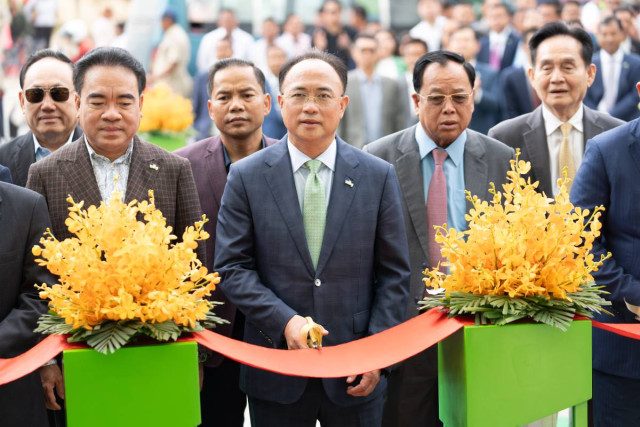Analysts Warn Bribery on the Rise in Cambodia during the Pandemic
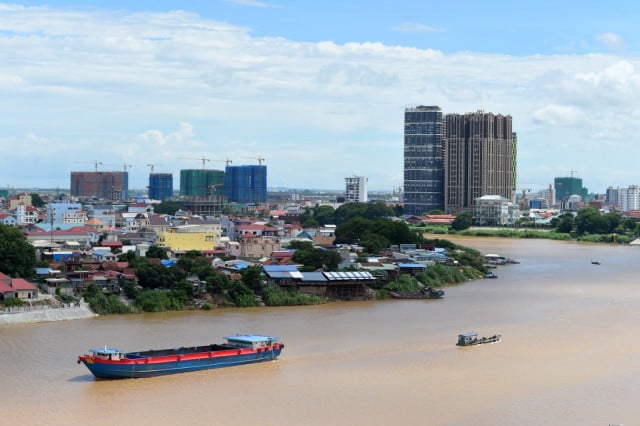
- Gerald Flynn
- November 30, 2020 7:04 AM
While informal payments have permeated almost every facet of Cambodian society for decades, the economic fallout of the COVID-19 pandemic seems to have further entrenched reliance on and acceptance of bribery.
PHNOM PENH--Scoring worse than the Democratic Republic of Congo, Iran and Syria, Cambodia’s problem with bribery has only worsened this year, according to data published on Nov. 19 by TRACE International’s 2020 Bribery Matrix.
By collating data from a range of sources, TRACE’s matrix analyzed 194 countries in 2020—down from 200 last year—to assess the risk of bribery in each country based on the opportunity for bribery, deterrence measures in place, the enforcement of such measures, along with each country’s overall transparency, which includes the prevalence of oversight in the form of civil society and press freedoms.
In 2019, Cambodia scored 79/100—which TRACE considers a “very high” risk level—and ranked 189th out of 200, placing it among other at-risk jurisdictions such as North Korea, Iran and Uzbekistan. One year on and there are virtually no positive changes to report.
TRACE’s 2020 Bribery Matrix, while analyzing fewer countries, still saw Cambodia drop further down the leaderboard with all the available data pointing to an increased risk of bribery. This year Cambodia’s bribery risk was scored at 80/100, coming in at 186th out of 194—just eight places from the bottom.
“While Cambodia's strict rank went from 189 to 186, its relative percentile went from 0.94 to 0.95, reflecting an overall worsening,” explained Alexandra Wrage, president of TRACE. “In a strict comparison to last year, the contribution of the enforcement subdomain, which moved from 76 to 77, wasn't significant.”
While mildly lower levels of enforcement are not reflective of significant changes to Cambodia’s relationship with under-the-table payments, Wrage noted that TRACE’s assessment of dissuasion—a measure of a society’s tolerance for bribery—tapped into something, with Cambodia going from 65/100 in 2019 to 77/100 in 2020.
Based on TRACE’s assessment, Cambodians are becoming more comfortable with paying bribes.
“Other long-term drivers of worsening bribery risk in Cambodia are the ongoing erosion of press freedom and civil society, which acts as checks on corruption when allowed to thrive,” said Wrage.
Cambodia’s Crackdown on Critics Frees Space for Corruption
Indeed, TRACE’s assessment of oversight in Cambodia, which measures the freedoms of civil society organizations and the independence of the press, reflect the ongoing crackdown taking place under Prime Minister Hun Sen’s leadership. This year has seen an unprecedented wave of arrests—often on dubious charges—of activists, journalists, political supporters of the Supreme Court-dissolved Cambodia National Rescue Party (CNRP), along with environmentalists, artists and other critics.
For Wrage, the function of a free press and strong civil society might not directly impact the propensity for bribery or corruption, but both play a key role in the long-term reduction of a country’s bribery risk. A free and active civil society can help reign in the more egregious acts of corruption, she said.
“When bad actors know they face possible public exposure and consequences for bribery demands, they tend to loot with less abandon,” Wrage wrote in an email. “A regime that would like corruption to continue uninterrupted has every incentive to clamp down on countervailing social forces and on independent investigations by the free press.”
It was investigating “irregularities” in the demarcation of the Cambodia-Vietnam border that landed Rong Chhun—an ardent unionist and rights activist—in jail where he awaits sentencing after being charged with incitement. If found guilty, he is set to face a 2-year prison sentence.
The pace and scale of arrests in Cambodia over the course of 2020 have caused grave concerns among UN experts and US lawmakers, while international legal observers have accused Hun Sen of “weaponizing” incitement laws to silence dissent and heighten the culture of self-censorship that has festered following the 2017 dissolution of the CNRP.
This year has also seen brazen nepotism at the highest levels of government, with Hun Sen granting his children and others within his networks of patronage vast expanses of land in Preah Sihanouk Province, where—since July 2020—four sub-decrees have granted six people more than 130 hectares of land. Such gifts may have caused some consternation among local officials, but beyond these grumblings, corruption is very much an accepted part of life, according to Wrage.
“Cambodia’s Matrix ranking and score this year indicate a deeply rooted bribery risk and that current conditions remain unfavorable to bringing about change,” she said.
Cambodia Still Failing to Address Corruption and Bribery
Cambodia’s failure to tackle corruption is nothing new. Transparency International’s annual Corruption Perceptions Index (CPI) highlights the stagnation in Cambodia’s fight against corruption. Cambodia has consistently scored poorly on the index, which also measures a wide range of data to assess a country’s perception of corruption in terms of scope and scale—the higher the score out of 100, the less corruption is perceived by a nation’s inhabitants.
Since 2012, Cambodia has predominantly scored worse each year, with 2014 being the only year where its corruption score improved, but even then it went from 20/100 in 2013 to just 21/100 in 2014, before dropping back to 20/100 in 2018. Since then Cambodia’s score has remained the same—a sad fact that Pech Pisey, executive director of Transparency International’s Cambodian chapter, sees as an indication of the lack of political will to address the issue.
He said that TRACE’s findings corroborate Transparency’s own research, noting that the gulf between policy and practice remains key to understanding why bribery and corruption are so endemic in Cambodia.
“The independence of government bodies is still questionable, while check and balance mechanisms within the state need to be enhanced,” said Pisey, who noted that nepotism is commonly exhibited by the ruling class, who he said engage in corrupt practices with impunity.
One of the largest surveys on corruption and bribery in Asia was conducted by Transparency International between March 2019 and September 2020, with the results published in the 2020 Global Corruption Barometer. The findings paint a bleak picture for the region, as 20,000 people from 17 countries detailed their thoughts and understandings of corruption.
Three in four people surveyed felt that government corruption is a big problem, but while 28 percent of people felt that the level of corruption had remained the same in the previous 12 months, 32 percent felt it had increased over that period.
In Cambodia, the data tell a slightly different story: Just 12 percent felt corruption had intensified and 55 percent felt it had actually decreased. Despite all data pointing to the opposite, 79 percent of respondents said that the government had done a good job of tackling corruption.
However, this response was put into stark contrast when Cambodians were asked whether they had paid a bribe to access basic services such as education or healthcare. Some 37 percent said that they had, placing Cambodia second only to India in the 17 countries surveyed in terms of the prevalence of bribery.
Criticizing the lack of real progress, Pisey pointed out that 40 percent of Cambodians had paid a bribe for access to basic services in 2017, adding that more work needs to be done.
“Transparency International’s CPI 2019 suggests that Cambodia's level of public sector corruption is perceived to be very high by experts and business people, while the Global Corruption Barometer 2020—a survey of people's corruption views and experiences—confirms this,” explained Pisey, who noted that the police are regarded as the most corrupt institution in the country, followed by public officials and the courts.
He went on to say that while a degree of political will to combat corruption has been seen recently, it has not been enough.
“Combatting corruption requires strong and full political will, and the lack of which only leads to a small group of the powerful and elite reaping the benefits, while society and its people continue to suffer from this cancer of corruption,” he said, stressing that more effort is needed from anti-corruption actors in Cambodia.
Head of the Anti-Corruption Unit Om Yentieng, whose integrity was called into question in 2016 after he hired two of his sons to serve as assistants within the unit, could not be reached for comment on the government’s plans to address the rampant corruption that has long plagued Cambodia.
COVID-19 Creates Perfect Conditions for Exploitation
While neither Wrage nor Pisey were willing to pin Cambodia’s recent deterioration in terms of bribery and corruption on the COVID-19 pandemic, the economic impact cannot be understated. The Asian Development Bank Institute (ADBI)—the think-tank wing of the Asian Development Bank—on Sept. 16 published findings from a survey highlighting the loss of income across ASEAN member states.
In Cambodia, the ADBI found that 75 percent of the 1,026 people surveyed had lost some degree of their household income—11 percent of respondents reported losing more than 75 percent of their total household income since the pandemic began. Just 1 percent of those surveyed reported an increase in income.
More than 25 percent of households reported that at least one person was out of work and 34 percent said they had encountered financial difficulties in the advent of COVID-19.
As Pisey noted, the conditions are ripe for exploitation as the ADB predicts a 4 percent contraction of the economy for 2020 and hundreds of thousands of Cambodians remain unemployed as a result of the collapse of the tourism industry, the garment manufacturing sector and the lack of work available abroad due to travel restrictions.
Earlier this month, the Siem Reap Provincial Administration announced it was investigating a scam that was targeting out-of-work Cambodians by promising work at the Japanese Consulate in Siem Reap Province for $600. While it remains unclear how many people lost money to the scam, the desperation of those out of work is becoming more apparent—with it, so is the willingness to pay bribes for the sake of survival.
Will Brehm—a lecturer in education and international development at the University College London Institute of Education—asserted that the pandemic will further entrench Cambodians’ attitude towards informal payments and strengthen the patron-client relationships through which the money flows, but warned of labeling all of these payments as bribery or corruption.
Brehm, whose forthcoming book Cambodia for Sale: Everyday Privatization in Education and Beyond—set for release in March 2021—is the result of nearly 11 years of academic research into what he calls “informal payments.”
In a telephone interview, Brehm explained that it was through his work in the field of education development in Cambodia that he first came to understand the importance of bribery in Cambodian society. The distinctive school uniforms, he explained, were his first window into the web of under-the-table money that Cambodia is entangled in. Seeing students hanging around public schools in casual clothes led Brehm to ask a question that would take him a decade to answer.
“Initially I thought it was down to the facilities, clean water, toilets, etc., but then I spoke with my colleagues and realized that a lot of those children were there for private tutoring,” he said, noting that public school teachers still rely on private tutoring to supplement their historically low wages—often conducting private classes in public facilities.
“But at a basic level, there is a fee attached to the tutoring and this will inevitably harm the students who cannot pay,” Brehm warned. “Often what I’ve learned is that teachers are teaching the mainstream curriculum in their private lessons. So if you could only go to mainstream schooling and you can’t go to tutoring, then you’re going to miss out when it comes to tests.
“What I’ve realized is that it’s embedded in a much larger social system,” he added.
Bribery—an Informal Fee Necessary to Life in Cambodia
This is where corruption, which has long characterized Cambodia, poses a problem at the lower-value end of bribes. The damage done—both societally and environmentally—by large-scale, high-value corruption is visible throughout Phnom Penh and beyond, but the everyday corruption that takes place in Cambodia’s streets, schools, hospitals, administrative offices and even pagodas, has a more subtle impact on the country’s development.
“That’s where I started looking at informal fees and how to think about them and how do we explain them, why do they exist, where do they come from?” explained Brehm who admitted that his initial approach was “from a Western angle.
“I saw corruption right away—that was my initial reaction—but I would actually grow to learn that most people don’t see it that way,” mused Brehm.
He ventured that the notion of corruption is constructed by communities based on what they deem acceptable, permissible and even potentially beneficial within their society—something that eludes a universal definition and a far cry from what might constitute corruption by Western standards.
“I’m not trying to be an apologist for these informal fees that, I know, cause inequality and harm to people, but I do think we need to have a complex understanding of which fees, which forms of informal payment are problematic and why and would slip into the notion of bribery,” said Brehm.
Acquiring the understanding that Brehm recommends means diving deeper into Cambodia’s history. He delved into the historical cultural norms that permeated what he called village life and detailed how societies beyond Cambodia’s larger cities behaved and functioned differently from more remote, rural areas.
Brehm then went on to explain that in Cambodian village life, there exists a patron-client relationship, whereby a person of power—the patron—will use their political, economic or even physical power to protect and preserve the village—the clients. In return, the clients then pay tribute to their patron in the form of money, labor, food or other signifiers of respect and gratitude.
“I think that particular form of social relationship still exists in Cambodia, as it does in other countries, but I think for Westerners that’s probably the hardest form of social relationship to think of as normal and ok,” explained Brehm, who noted that these relationships were key in securing Cambodia’s recovery from the brutal Khmer Rouge years.
He explained this through the history of Cambodia’s education system, looking back to the immediate fall of the Khmer Rouge and the years that followed. The Ministry of Education, prior to Youth and Sport being added to its jurisdiction, lacked the resources to rebuild from scratch the national education system. Instead the ministry served as a facilitator, providing materials and curricula to teachers, but for many rural communities, the finding, hiring and housing of a teacher would be up to them.
This meant that often, teachers would be hired to teach a village or a community and paid in food, accommodation and a little money—all of which drove a very relationship-focused economy with education as a key commodity.
Cambodia Still “For Sale”
For Brehm, this reliance on informal payments made by “clients” to “patrons” has been a hard habit for Cambodia to kick, but he argued that in some ways, the informal economy can play its part in development.
“In Cambodia, most communes have a designated Cambodian People’s Party [CPP] patron and that’s common practice by the CPP,” Brehm observed. “That patron ensures roads are built in their commune, different social services [are provided]; irrigation, hospitals, schools. To some extent that’s a positive because these rural communities that might require a lot of support are getting the attention of someone in a position of power to provide that support.”
However, as the vice-like grips of power and circumstance tighten upon Cambodian society, there is an enhanced risk of these informal patron-client relationships becoming more exploitative, he added.
“It can go off the rails if the commune is then broken down into figuring out which villagers voted for the CPP and which didn’t and then directing the largesse to those communities, and we know that happens,” Brehm said, but stressed that it doesn’t happen nearly as much as is often imagined.
In June 2020, questions of corruption were raised in relation to the ID Poor Program—a government-funded cash transfer program aiming to support Cambodia’s most financially vulnerable—with Hun Sen himself warning local officials against registering their families and friends as low income to take advantage of the system.
“It sort of asks the question what forms of accountability can be constructed where such social norms are common, because the typical forms of accountability don’t actually work that well,” said Brehm, who added that similar patterns of social behavior—bribery—re-emerge regardless of the accountability structure that’s been implemented to try and stop the behavior.
Brehm again reiterated that, based on his research, these cases were the exception rather than the rule as most commune chiefs wanted to see their communities prosper. But he noted that the informal payments seen in the education system are seen throughout Cambodian society, with varying levels of severity from sector to sector.
He warned that Cambodia’s healthcare system has long been divided by the public and private elements, but that the ability to pay for what is effectively private care remains embedded within the public system of health.
“It has clear, serious health problems—more people die who can’t afford the private healthcare, which is quite serious,” he said, adding that hospitals accepting payments for faster treatment, better quality of care and higher quality facilities remains an issue. Even the proximity of loan-sharks to healthcare facilities shows that people are willing to go into debt to ensure they have access to basic healthcare services when needed.
Local government, he suggested, continue to offer a huge variation on costs for administrative services. While supporting the notion that local government collects fees based on services provided, Brehm contended that social class plays an important role in determining the fee paid for wedding reservations, motorcycle registration and other official services.
“These council-level government administrative activities that have a cost—and should have a cost—often don’t have a standard fee, even if there is a standard fee, then they don’t show it, they just charge people based on their social class,” noted Brehm.
No Change in Sight
Throughout his research, he observed local officials running for office on the basis of making fees for services standardized and publicly available, while others regarded the ability to charge rich Cambodians more as a means to an end—a perk of a historically low-paid job. He explained that the same was true of teachers, who have also suffered under poor pay for decades, but have been able to make six to seven times their monthly government salary by tutoring in nearby cities.
Microfinance also featured as one area of grave concern, not just for Brehm, but among Cambodians who are now struggling to repay interest, let alone the principle debts they owe. This is despite the National Bank of Cambodia’s efforts to force the microfinance sector to restructure debts—a fraction of those who need debt relief appear to have received it.
Even pagodas, Brehm added, were affected by forms of bribery or informal payments, with big-spending patrons demanding their names, photos and other forms of branding be added to the pagoda in return for donations of $50 or more to the monks.
Again, Brehm reiterated that the line between bribery and community support blurs, but that one explanation for the prevalence of such informal payments could be Cambodia’s history. While neoliberalism became the consensus for the US and other Western governments providing official development aid, Cambodia was just emerging from conflict.
“The idea that people should pay fees for social services became accepted and so that was the final straw that just made these systems completely entrenched: There was no way of creating a new system out of conflict when all the aid agencies were convincing government officials of the ‘proper ways’ to manage as a government,” Brehm suggested, adding that Cambodia’s ascension to the World Trade Organization in 2004 represented “the ultimate calling card” of having joined the international neoliberal community.
“I think [the pandemic] will further entrench the informal payments and patron-client relationships,” Brehm concluded. “It’s a very uncertain moment, it’ll be an interesting future, but I’m pretty sure that informal fees of some sort will persist, just as they have historically, I don’t see them disappearing anytime soon.”







